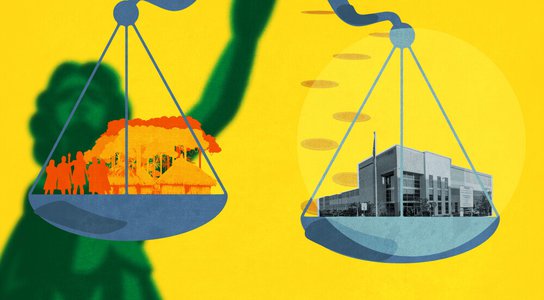For years, Global Witness has reported on the close links between human rights abuses, environmental destruction and corruption. Corruption diverts resources, often expediting or exacerbating human rights and environmental abuses by allowing destructive projects to go ahead, dodgy concessions to be granted and communities to be displaced for profit. It increases power imbalances between those who are rich, powerful and profitable and the affected people and communities that suffer the consequences.
As the European Union moves ahead with plans to create a new law to protect people and the planet from the harmful impacts of business
activity globally, it must ensure that this includes strong measures to tackle
corruption.
Global Witness and Transparency International EU have commissioned a new report by Professor Olivier de Schutter, which shows that despite commitments from every EU country to tackle bribery and corruption, implementation remains low. There is significant variation between countries, especially when it comes to imposing anti-corruption obligations on companies with only three of 27 countries having legislation in place that requires companies to prevent and detect corruption.
This report makes the case for the EU to require that for companies to address the negative risks and impacts of corruption as part of a broader human rights and environmental due diligence obligation. This will not substitute for broader efforts required to strengthen the EU’s fight against corruption. However, strong anti-corruption measures integrated into due diligence processes will help to catalyse business action on corruption, harmonise the legislative approach to this and remove distortions in competition in the EU’s internal market.
In March 2021, a strong majority in the European Parliament voted to approve a report calling for corporate accountability legislation. The report recognises the intrinsic link , by calling for companies to be required to conduct due diligence to assess, prevent, mitigate and account for negative human rights, environmental and governance impacts in their operations and value chains.
Our new report confirms that this new law is an opportunity for the EU to show leadership in global efforts to tackle bribery and corruption.


